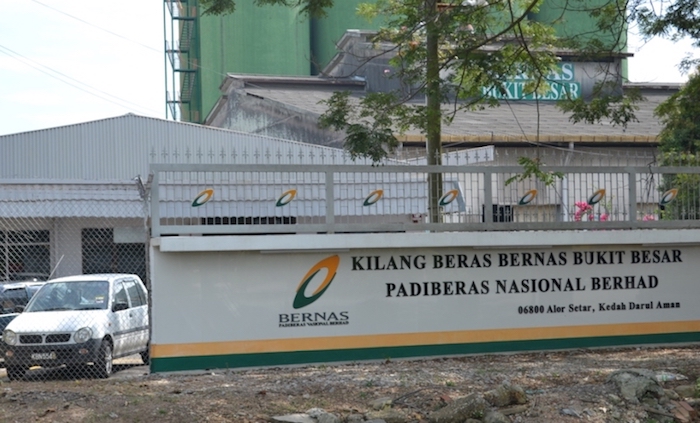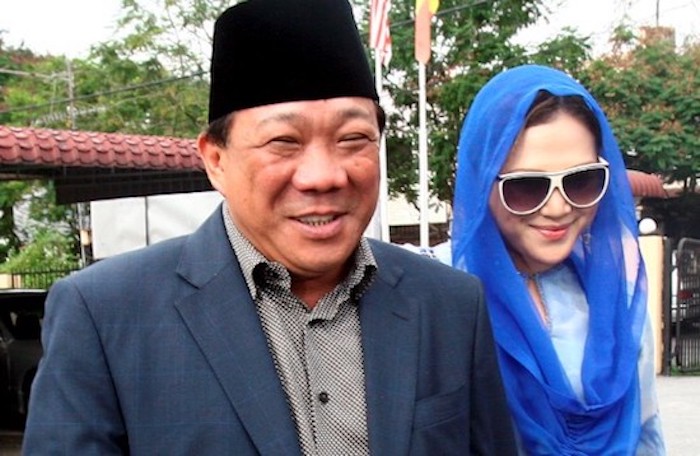On 12th November 2013, Anwar Ibrahim said the original intent to privatise Bernas was to ensure the fulfillment of the nation’s growing rice requirement through management of the National Stockpile and the Padi Price Subsidy Scheme. He also added that privatisation was introduced to ensure the bumiputera farmers, rice distributors and workers at Bernas benefit from the equity ownership.
THE CORRIDORS OF POWER
Raja Petra Kamarudin
ACA probes import of RM60m rice
(New Straits Times, 5 January 2008) — The Anti-Corruption Agency has started a probe against rice distributor Padiberas Nasional Bhd (Bernas) and the Agriculture and Agro-based Industry Ministry. Investigations centred around 25,000 tonnes of fragrant rice worth RM60 million imported from Thailand without an import permit. A team of ACA officers interviewed several ministry staff on Thursday.
Yesterday, ACA officers went to the Bernas offices in Petaling Jaya where statements were recorded. ACA investigations director Mohd Shukri Abdull confirmed the investigations. “Checks at the two premises are being conducted as part of investigation. So far, only the statements of several officers at the ministry and Bernas have been recorded,” he said.
Investigators are also probing whether the rules and regulations regarding imports had been followed. The ACA is also investigating whether there is any hanky-panky going on.Meanwhile, ministry secretary-general Datuk Dr Zulkifli Idris said Bernas officials met ministry officials and Customs officers yesterday. “Bernas apologised for importing rice above the permitted quota without referring to the ministry. It also given assurances that such a mistake will not be repeated,” he said.
He added that Bernas claimed it was forced to place an early order for rice because of anxieties that it would be difficult to get supplies of rice as there was currently a shortage in the world market. “In a situation of first-come, first-served, Bernas placed an order for 16,000 tonnes of rice for last year and an additional 19,000 tonnes for this year although the overall quota for 2008 has yet to be decided,” Dr Zulkifli said.
He added that an AP had been issued for the rice which exceeded the permitted quota. All parties also agreed on a more effective mechanism for the process of importing rice and to hold more frequent meetings. The ministry also agreed to issue APs immediately for importing rice within the permitted quota and additional APs within a week if the imports exceeded the quota.
Last Monday, Bernas had imported fragrant rice without an AP resulting in 10,000 tonnes to be held at the Pasir Gudang port. An additional 10,000 tonnes could not be unloaded on a ship in the Kota Kinabalu port and 5,000 tonnes at Port Klang.
Bernas is said to have submitted an AP application to the ministry on Dec 20, as soon as the ships carrying the rice docked at the ports. It is an offence to import fragrant rice without an AP as the rules state that the AP has to be issued prior to the rice being imported and not the other way around.

MPs want Bernas to be reviewed
(Bernama, 15 November 2005) — Syarikat Beras Nasional (Bernas) which has the sole rice importing licence in the country has received much criticism from members of parliament who want its functions and structure to be reviewed. Datuk Badruddin Amiruldin (BN-Jerai) said the government must intervene in the matter as he claimed the company’s functions had contradicted its original objectives.
He told the Dewan Rakyat the move by the government in giving the import permit (AP) to Bernas had resulted in the company focusing on importing rice instead of producing rice for the country. “Importing (rice) is easy but processing it entails much problems. What has happened to the conditions imposed on Bernas? What we see now is that Bumiputera-owned rice mills have closed down…where are they now?” he asked when debating the Ministry of Agriculture and Ago-based Industry’s Supply Bill 2006 at the committee stage Tuesday.
Badruddin also questioned the national rice stockpile which was 92 metric tons at any one time which was previously located at Anak Bukit. He said it was an offence for the national rice stockpile for use during an emergency to be kept by a private company as it involved national security.

“Why do we want to be both (importing and producing rice) which would eventually bring us nothing and people see that Bernas is making the profit,” said Bung Moktar
Meanwhile, Datuk Bung Moktar Raden (BN-Kinabantangan) when debating on the same bill said the government must be firm on the country’s direction in terms of agriculture, whether to continue to be an importing country or to realise the objective of strengthening the agricultural sector to become a producing country. “Why do we want to be both (importing and producing rice) which would eventually bring us nothing and people see that Bernas is making the profit,” he said.
Bernas was making money by importing rice and selling it instead of buying from the farmers, he said. Also touching on the same issue during the debate were Datuk Raja Ahmad Zainuddin Raja Omar (BN-Larut), Mo’kiman Kobran (BN-Hulu Langat), Ir Shaari Hassan (BN-Tanah Merah), Dr Mohd Hayati Othman (PAS-Pendang) and Mohd Razali Che Mamat (BN-Kuala Krai).
Pagar makan padi: The Bernas story
(Free Anwar Campaign, 26 August 2003) — Padiberas Nasional Berhad, better known as Bernas, wants to retrench a couple of thousand of its staff because, according to the company, it is losing money. And the reason it is losing money, laments the company, is due to the rampant rice smuggling.
Actually there is more than meets the eye and it is not as straightforward as they try to make it appear. In the latest issue of Seruan Keadilan out today, the official newspaper of the National Justice Party reveals what is really going on.
Last year, Bernas made a pre-tax profit of RM60 million on a turnover of RM1.76 billion. No doubt the company could argue that this is a drop of 54% from the figure of RM128 million the year before that. Nevertheless, the ‘suffering’ Bernas still saw fit to pay its Directors RM4 million in salaries and its shareholders RM21 million in dividends. That’s RM25 million in all.
If an austerity drive is necessary, should it not be the Directors and shareholders who suffer the cuts first rather than retrench more than 2,000 staff just because the company is not happy with the lower profit it made? And take note, it still did make a profit, though lower, and not make a loss as they claim.
Bernas’ profits have been yo-yoing from one year to another. Three years ago it made a mere RM18 million while the year before that it made RM111 million. Its turnover too fluctuates between RM1.7 billion and RM1.9 billion a year, still an impressive enough figure and not one of a company about to go under. In fact, on average, it made RM80 million in profits a year over the last four years from 1999 to 2002.
Bernas is far from floundering if this is the impression the company is trying to give. Bernas, which was given the rice import monopoly for Malaysia, is actually going great guns acquiring various companies in the food industry. The truth is, Bernas wants to reduce its dependence on the rice industry to 60% by diversifying into other food related businesses. Bernas, to quote what the company says, wants to become another Nestle.
Bernas has set aside RM300 million for these acquisitions. It paid RM55 million to buy a 30% stake in Gardenia and RM14 million for Burger King. It also acquired an interest in Rasa Sayang Food Industries and is said to be making a back-door entry into Kentucky Fried Chicken for RM110 million. It has also entered into ‘strategic alliances’ with other food conglomerates like QAF Ltd of Singapore and Dewina, a company linked to the Deputy Prime Minister Abdullah Ahmad Badawi’s family.
READ FULL STORY HERE




